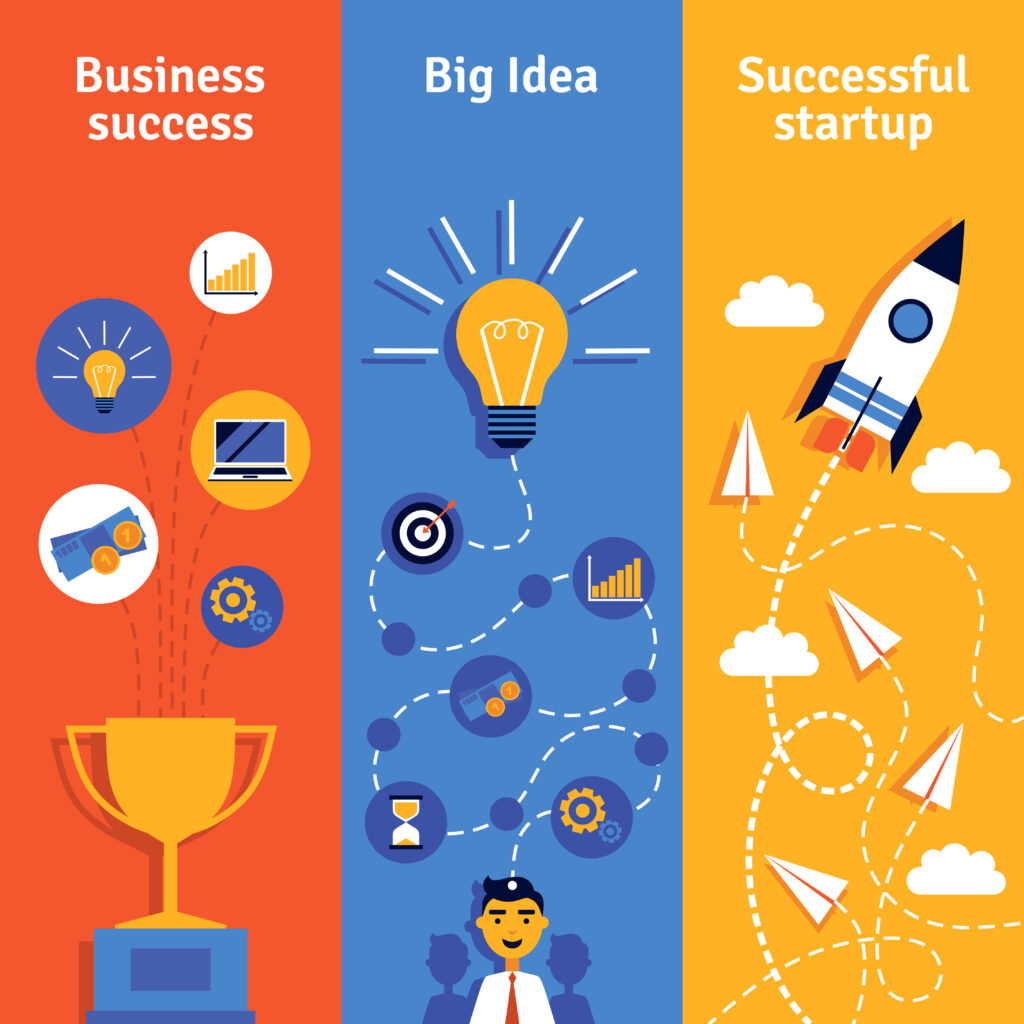- Home
- /
- Entrepreneurship
- /
- Unleashing the Entrepreneurial Spirit
Introduction
Entrepreneurship, often hailed as the engine of economic growth and innovation, is a dynamic and multifaceted journey that involves transforming ideas into tangible realities. It’s a path where individuals, driven by passion and a relentless spirit, navigate through challenges to create something meaningful. In this exploration of entrepreneurship, we’ll delve into its essence, the key characteristics that define successful entrepreneurs, the challenges they face, and the broader impact of entrepreneurship on society.
Defining Entrepreneurship

At its core, entrepreneurship is the process of identifying opportunities and creating value by bringing together resources to develop and scale a business idea. It’s a mindset that transcends the mere act of starting a business; it’s about embracing risk, fostering innovation, and constantly adapting to the ever-changing landscape of the business world. Successful entrepreneurs are, in essence, visionary risk-takers who dare to challenge the status quo.
Key Characteristics of Successful Entrepreneurs

Vision and Passion
Entrepreneurs are driven by a compelling vision that propels them forward, even in the face of uncertainty. Passion for their ideas fuels their determination, enabling them to overcome obstacles and persevere through the inevitable setbacks.
Risk-Taking and Resilience
Entrepreneurship inherently involves risk-taking. Successful entrepreneurs, however, don’t shy away from challenges; instead, they view obstacles as opportunities for growth. Their resilience in the face of failure sets them apart, allowing them to learn from mistakes and iterate on their ideas.
Innovative Thinking
The ability to think outside the box and innovate is a hallmark of entrepreneurship. Entrepreneurs constantly seek novel solutions to existing problems, disrupting industries and pushing the boundaries of what is possible.
Adaptability
In the fast-paced world of business, adaptability is key. Entrepreneurs must be flexible, and ready to pivot their strategies based on market feedback and emerging trends. The capacity to evolve with the ever-changing business landscape is a defining trait of successful entrepreneurs.
Resourcefulness
Limited resources are a common challenge for entrepreneurs, especially in the early stages of a venture. The ability to be resourceful, to maximize the impact of available resources, is crucial for overcoming financial constraints and achieving sustainable growth.
Types of Entrepreneurship

Let’s delve into the different types of entrepreneurship, each representing a unique approach and purpose within the broader landscape of business and innovation.
Small Business Entrepreneurship
Small business entrepreneurship is characterized by the establishment and operation of small-scale enterprises. These entrepreneurs often focus on local markets and are deeply connected to their communities. The primary goals are typically financial stability and fulfilling personal aspirations rather than rapid growth or market dominance.
Scalable Startup Entrepreneurship
This type of entrepreneurship is commonly associated with tech startups and ventures with high growth potential. Entrepreneurs in this category aim to create scalable and innovative businesses that can expand rapidly and capture significant market share. The focus is often on securing venture capital, developing disruptive technologies, and achieving exponential growth.
Social Entrepreneurship
Social entrepreneurs are driven by a dual mission of creating a positive social or environmental impact while sustaining a viable business model. These entrepreneurs seek innovative solutions to address societal challenges, such as poverty, inequality, or environmental sustainability. The success of social entrepreneurship is measured not only by financial metrics but also by its positive influence on communities and the planet.
Corporate Entrepreneurship (Intrapreneurship)
Intrapreneurship involves employees within a larger corporation behaving like entrepreneurs. These “intrapreneurs” are tasked with developing and implementing innovative ideas, products, or processes within the existing organizational structure. The goal is to foster innovation, maintain competitiveness, and explore new opportunities while leveraging the resources and support of the larger corporation.
Serial Entrepreneurship
Serial entrepreneurs are individuals who, after successfully launching and managing one venture, continue to start and lead new businesses. They thrive on the excitement of building something new and possess the experience and resilience gained from previous entrepreneurial endeavors. Serial entrepreneurship often involves a pattern of identifying opportunities, creating businesses, and exiting them to pursue new ventures.
Lifestyle Entrepreneurship
Lifestyle entrepreneurs prioritize the creation of a business that aligns with their desired lifestyle. The emphasis is on achieving a work-life balance, and the business is often a means to support and enhance the entrepreneur’s chosen way of life. These ventures may not pursue rapid growth but are designed to provide personal satisfaction and financial stability.
Technology Entrepreneurship
Technology entrepreneurship focuses on leveraging advancements in technology to create innovative products or services. Entrepreneurs in this category are often at the forefront of digital transformation, developing solutions that harness the power of emerging technologies such as artificial intelligence, blockchain, and the Internet of Things (IoT).
Green Entrepreneurship
Green or eco-entrepreneurship revolves around sustainable and environmentally friendly business practices. Entrepreneurs in this space prioritize reducing ecological footprints, promoting conservation, and addressing environmental challenges through their business models. Green entrepreneurship aligns profit-making with environmental stewardship.
Cultural Entrepreneurship
Cultural entrepreneurs contribute to the creative and cultural industries, such as arts, media, and entertainment. They play a pivotal role in shaping and disseminating cultural products and experiences. Cultural entrepreneurship involves the intersection of creativity, business, and cultural impact.
Franchise Entrepreneurship
Franchise entrepreneurs operate businesses under an established brand through a franchising agreement. While they benefit from the support and brand recognition of a larger entity, franchise entrepreneurs still have the autonomy to manage day-to-day operations. This model provides a balance between independence and the security of a proven business concept.
Understanding the diverse landscape of entrepreneurship allows aspiring business leaders to identify their interests, strengths, and the type of entrepreneurship that aligns with their goals. Whether driven by a social mission, a desire for innovation, or the pursuit of personal fulfillment, entrepreneurs contribute to the dynamic and ever-evolving fabric of the business world.
Challenges in the Entrepreneurial Journey

While the rewards of entrepreneurship can be immense, the journey is not without its challenges. From financial constraints to market competition, entrepreneurs face a myriad of obstacles that test their mettle. Some common challenges include:
Financial Constraints
Starting and scaling a business requires capital, and entrepreneurs often find themselves navigating the complexities of fundraising, budgeting, and financial management.
Market Dynamics
Understanding and navigating the market is a constant challenge. Entrepreneurs must stay attuned to consumer needs, industry trends, and competitive landscapes to make informed decisions.
Team Building
Building and managing a team is a skill that entrepreneurs must master. Effective leadership, communication, and team dynamics are crucial for a venture’s success.
Uncertainty and Risk
Entrepreneurship is inherently uncertain, and risk is a constant companion. Navigating this uncertainty requires a combination of strategic planning, adaptability, and a willingness to embrace calculated risks.
Work-Life Balance
The demanding nature of entrepreneurship often blurs the lines between work and personal life. Striking a balance is a perpetual challenge for entrepreneurs aiming to sustain both their business and well-being.
Impact of Entrepreneurship on Society

Beyond individual success stories, entrepreneurship plays a pivotal role in shaping societies and driving economic development. Here are some ways in which entrepreneurship contributes to societal progress:
Job Creation
Entrepreneurs are the engines of job creation. As they establish and expand their ventures, they generate employment opportunities, reducing unemployment and stimulating economic growth.
Innovation and Technological Advancement
Entrepreneurs are at the forefront of innovation, developing new products, services, and technologies that propel societies forward. Their ventures often lead to advancements that improve the quality of life for people globally.
Economic Growth
A thriving entrepreneurial ecosystem fosters economic growth by creating a competitive business environment. Successful ventures contribute to GDP growth, attract investment, and stimulate overall economic activity.
Community Development
Entrepreneurs, particularly those with a social conscience, contribute to community development. They may initiate projects that address local challenges, promote sustainable practices, and enhance the well-being of communities.
Cultural Impact
Entrepreneurship shapes cultural landscapes by influencing trends, introducing new ideas, and challenging existing norms. Entrepreneurs often become cultural icons, inspiring others to pursue their passions and make a positive impact on the world.
Conclusion

Entrepreneurship is a journey of discovery, resilience, and transformation. It’s a path where individuals harness their creativity, passion, and determination to create something greater than themselves. Successful entrepreneurs embody a unique blend of vision, risk-taking, and adaptability, navigating challenges to leave an indelible mark on society.
As we celebrate the spirit of entrepreneurship, let’s recognize its profound impact on job creation, innovation, economic growth, and community development. In a world that constantly evolves, entrepreneurs are the pioneers shaping the future, one idea at a time.












Leave a Reply